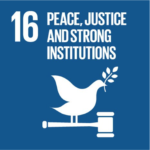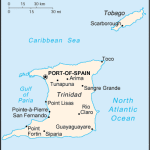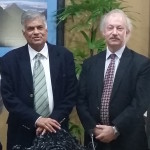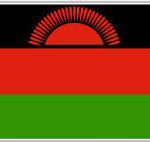 The Centre for Law and Democracy kicked off a new right to information (RTI) project in Pakistan today with a public presentation on the benefits of RTI. The project aims to provide support to information commissions and local government actors in Punjab and Khyber Pakhtunkhwa provinces of Pakistan with a view to improving implementation of RTI there. It is being undertaken as part of the Support to Local Governance Programme being run by the official German technical cooperation organisation, Deutsche Gesellshaft für Internationale Zusammenartbeit (GIZ) GmbH.
The Centre for Law and Democracy kicked off a new right to information (RTI) project in Pakistan today with a public presentation on the benefits of RTI. The project aims to provide support to information commissions and local government actors in Punjab and Khyber Pakhtunkhwa provinces of Pakistan with a view to improving implementation of RTI there. It is being undertaken as part of the Support to Local Governance Programme being run by the official German technical cooperation organisation, Deutsche Gesellshaft für Internationale Zusammenartbeit (GIZ) GmbH.
“This is an exciting project inasmuch as we are working directly with a range of key actors to improve implementation of the RTI laws in Punjab and Khyber Pakhtunkhwa provinces, which are among the strongest anywhere in the world”, said Toby Mendel, Executive Director of CLD. “We also hope to develop more robust tools to assess implementation, something which is sorely needed.”
The talk, at Beaconhouse National University (BNU), focused on the benefits of RTI with a view to trying to get more people engaged on the demand side through making requests for information. The event also included presentations by the Deputy Director of the Punjab Information Commission, local NGO the Centre for Peace and Development Initiatives (CPDI), GIZ and BNU staff.
For further information, please contact:
Toby Mendel
Executive Director
Centre for Law and Democracy
Email: toby@law-democracy.org
+1 902 431-3688
www.law-democracy.org
twitter: @law_democracy



 The Centre for Law and Democracy has prepared an analysis of the Pakistan Right of Access to Information Bill. The Bill, passed last week by the Pakistani National Assembly, is identical to the version passed by the Senate in May 2017. The Bill earned 105 points on the RTI Rating. This is far better than the right to information law currently in force, the 2002 Freedom of Information Ordinance, but far weaker than the groundbreaking laws adopted by Khyber Pakhtunkhwa and Punjab provinces in 2013.
The Centre for Law and Democracy has prepared an analysis of the Pakistan Right of Access to Information Bill. The Bill, passed last week by the Pakistani National Assembly, is identical to the version passed by the Senate in May 2017. The Bill earned 105 points on the RTI Rating. This is far better than the right to information law currently in force, the 2002 Freedom of Information Ordinance, but far weaker than the groundbreaking laws adopted by Khyber Pakhtunkhwa and Punjab provinces in 2013. The Centre for Law and Democracy is this year celebrating International Right to Know Day, 28 September, by undertaking a few different activities. We are hosting an Ask Me Anything on Reddit on the theme of the Day, with support from colleagues in Argentina (CELE), South Africa (ODAC), Spain (AIE), Tunisia (GoAct) and Uganda (Catherine Anite). In previous years, we have had a huge response to these events.
The Centre for Law and Democracy is this year celebrating International Right to Know Day, 28 September, by undertaking a few different activities. We are hosting an Ask Me Anything on Reddit on the theme of the Day, with support from colleagues in Argentina (CELE), South Africa (ODAC), Spain (AIE), Tunisia (GoAct) and Uganda (Catherine Anite). In previous years, we have had a huge response to these events. The Centre for Law and Democracy has assessed the compliance of ten Canadian public authorities with Sustainable Development Goal (SDG) Indicator 16.10.2, which is: “Adoption and implementation of constitutional, statutory and/or policy guarantees for public access to information”. The methodology behind the assessment was developed by the Freedom of Information Advocates Network (FOIAnet) and assessments are being conducted by different FOIAnet members in a number of countries around the world. CLD has produced a report summarising the results of the assessment, Canada: Civil Society Parallel Assessment of Compliance with Sustainable Development Goal Indicator 16.10.2.
The Centre for Law and Democracy has assessed the compliance of ten Canadian public authorities with Sustainable Development Goal (SDG) Indicator 16.10.2, which is: “Adoption and implementation of constitutional, statutory and/or policy guarantees for public access to information”. The methodology behind the assessment was developed by the Freedom of Information Advocates Network (FOIAnet) and assessments are being conducted by different FOIAnet members in a number of countries around the world. CLD has produced a report summarising the results of the assessment, Canada: Civil Society Parallel Assessment of Compliance with Sustainable Development Goal Indicator 16.10.2. On International Right to Know Day , The Centre for Law and Democracy joined a global coalition of civil society organisations and concerned citizens committed to ensuring a strong access to information (ATI) system in Canada to issue a letter to the President of the Treasury Board, Scott Brison, calling on him to withdraw the government’s inadequate Access to Information Act reform legislation, Bill C-58 and come forward with a bill that would address seriously the broken access to information system. We have reproduced the letter below.
On International Right to Know Day , The Centre for Law and Democracy joined a global coalition of civil society organisations and concerned citizens committed to ensuring a strong access to information (ATI) system in Canada to issue a letter to the President of the Treasury Board, Scott Brison, calling on him to withdraw the government’s inadequate Access to Information Act reform legislation, Bill C-58 and come forward with a bill that would address seriously the broken access to information system. We have reproduced the letter below.
 The Asian Development Bank (ADB) is currently conducting a consultation on its proposals to reform its right to information policy, the Public Communications Policy 2011. An submission to the consultation by CLD concludes that, after important advances at the ADB in 2005 and 2011, the current Draft Consultation Paper can only be described as disappointing. There are few innovations over 2011 and, in the most problematical area, namely the regime of exceptions, there are even some rollbacks.
The Asian Development Bank (ADB) is currently conducting a consultation on its proposals to reform its right to information policy, the Public Communications Policy 2011. An submission to the consultation by CLD concludes that, after important advances at the ADB in 2005 and 2011, the current Draft Consultation Paper can only be described as disappointing. There are few innovations over 2011 and, in the most problematical area, namely the regime of exceptions, there are even some rollbacks.




 Information officers from government ministries and public bodies in Jordan met today at the National Library in a networking event to foster debate around creating a “community of practice” for these officers. Under the patronage of HE Dr. Mohammed Al Momani, Minister of State for Media Affairs and government spokesperson, the networking event was a follow-up to the successful trainings on the implementation of the Access to Information (ATI) Law organised by UNESCO Amman Office, Centre for Law and Democracy (CLD) and Department of the National Library as part of the EU funded and UNESCO implemented “Support to Media in Jordan” Project.
Information officers from government ministries and public bodies in Jordan met today at the National Library in a networking event to foster debate around creating a “community of practice” for these officers. Under the patronage of HE Dr. Mohammed Al Momani, Minister of State for Media Affairs and government spokesperson, the networking event was a follow-up to the successful trainings on the implementation of the Access to Information (ATI) Law organised by UNESCO Amman Office, Centre for Law and Democracy (CLD) and Department of the National Library as part of the EU funded and UNESCO implemented “Support to Media in Jordan” Project. 
 After many years of debate and numerous versions, the government of Mongolia has finally placed a draft Broadcasting Law before parliament. The Centre for Law and Democracy (CLD) welcomes this much needed initiative which provides an opportunity to set clear rules for the licensing of broadcasters, to create an independent regulatory body, to promote diversity in the airwaves and to establish a fair complaints system. While the draft Law achieves some of these goals, an Analysis released today by CLD shows that major revisions are still needed.
After many years of debate and numerous versions, the government of Mongolia has finally placed a draft Broadcasting Law before parliament. The Centre for Law and Democracy (CLD) welcomes this much needed initiative which provides an opportunity to set clear rules for the licensing of broadcasters, to create an independent regulatory body, to promote diversity in the airwaves and to establish a fair complaints system. While the draft Law achieves some of these goals, an Analysis released today by CLD shows that major revisions are still needed. 


